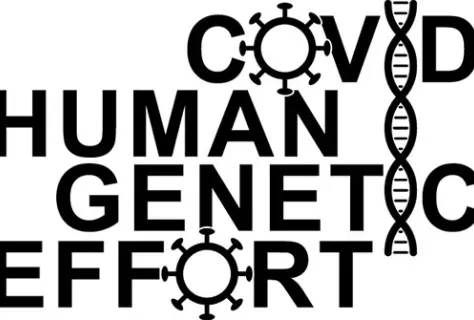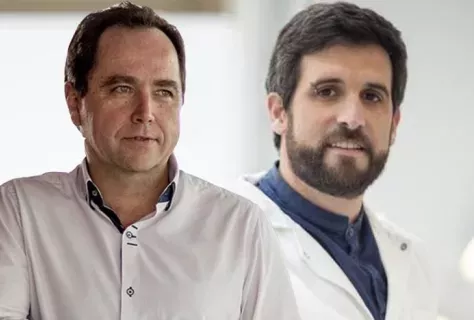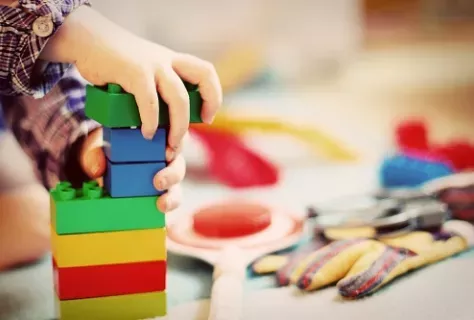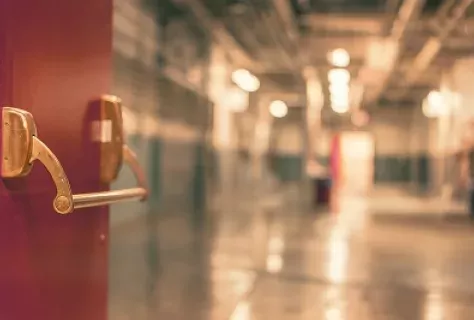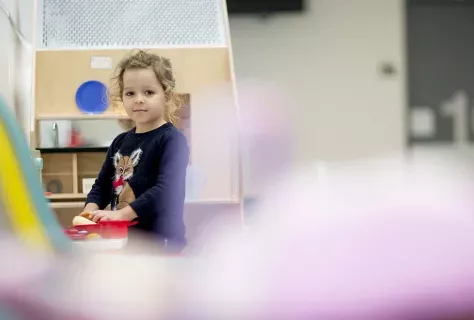Published on 11.06.2020
Many questions arise around patients infected with the SARS-CoV-2 coronavirus responsible for COVID-19 and their immunity. Are they protected from further infection? For how long? How do you test a person's immunity? The immunology specialist, Prof. Alain Fischer, provides some answers, based on the current state of knowledge.
Which antibodies protect against a second infection?
Alain Fischer: During an immune response, antibodies are produced by the body, initially immunoglobulins (IgM) and then immunoglobulin G (IgG), which can be neutralizing, meaning that these antibodies prevent the virus from entering the host cell (respiratory tract epithelial cells primarily for CoV2-SARS) and thus from multiplying.
Observations and studies on antibodies to SARS-CoV-2 show that all patients infected with this virus develop neutralizing antibodies, usually one week after infection. Patients who are asymptomatic or have very few symptoms usually have lower antibody levels and appear later, but also with neutralizing activity.
Is it possible that the production of antibodies is dependent on the severity of the disease?
AF: It appears that more antibodies are detected in patients with more pronounced symptoms of COVID-19. But these are partial results. We must wait for additional data to confirm these initial results.
How long does immunity last?
AF : We don't have enough hindsight to determine that. Based on previous coronavirus infections, this duration is relatively short, in the order of two to three years. Will it be the same with SARS-CoV-2? We do not know. Hence the importance of epidemiological monitoring over time. Moreover, not detecting antibodies in an individual does not necessarily mean that he or she is no longer protected. Indeed, antibodies can reappear a little later. But it can also rely on cellular immunity linked to T-lymphocytes, cells of the immune system that also have a memory.
How can we explain the observed cases where there seems to be a new contamination?
AF :In principle, having developed antibodies protects against a new infection. But then again, you have to be careful. It is the follow-up of patients over time that will make it possible to correlate the disappearance of antibodies with a possible re-infection.
How do we test for antibodies?
AF :The presence of antibodies is measured by serological tests, many of which are under development for SARS-CoV-2. Some have obtained a European medical CE mark, which means that they meet certain standards. The next crucial step is the validation of these tests by National Reference Centres (NRCs) for respiratory infection viruses, such as the one at the Institut Pasteur in Paris, in constant contact with their international counterparts. For the moment, we do not yet have reliable validated tests in common use.
Why test the immunity of infected people?
AF: When reliable serological tests become available, they will primarily be a valuable tool for epidemiologists, who, based on data from representative samples of the population, can estimate the prevalence of protected persons over time and in different regions. At the individual level, this information may be important in determining whether or not an individual is protected. These tests can be used on priority populations, such as health professionals.
How soon will a vaccine be available?
AF: In the absence of effective therapy for COVID-19, vaccine development is essential. More than 140 projects with different strategies are being launched around the world, but with no certainty of success. The development of a vaccine takes time, with 4 steps: development with demonstration of efficacy and non-toxicity, production in very large quantities, price accessible to all countries, and finally acceptance by the population of the vaccine, even if it is only partially effective. Each step is a challenge in itself and can take a long time.
L'impact de vos dons
Quelle est la durée de l’immunité ?
AF : Nous n’avons pas le recul suffisant pour le déterminer. En se fondant sur les précédentes infections à coronavirus, cette durée est relativement courte, de l’ordre de deux ou trois ans. Est-ce qu’il en sera de même avec le SARS-CoV-2 ? Nous ne le savons pas. D’où l’importance d’un suivi épidémiologique dans le temps. De plus, ne plus détecter d’anticorps chez un individu, ne veut pas forcément dire que celui-ci n’est plus protégé. En effet, des anticorps peuvent réapparaitre un peu plus tard. Mais il peut aussi compter sur une immunité cellulaire liée aux lymphocytes T, cellules du système immunitaire qui ont, elles-aussi, une mémoire.
Comment expliquer les cas observés où il semblerait y avoir une nouvelle contamination ?
AF : En principe, le fait d’avoir développé des anticorps protège d’une nouvelle infection. Mais là encore, il faut rester prudent. C’est le suivi des patients au cours du temps qui permettra de corréler la disparition d’anticorps avec une éventuelle ré-infection.
Comment teste-t-on la présence d’anticorps ?
AF : La présence d’anticorps est mesurée par des tests sérologiques, dont beaucoup sont en cours de développement pour le SARS-CoV-2. Certains ont obtenu un marquage CE médical européen, ce qui signifie qu’ils répondent à certaines normes. L’étape, suivante et cruciale, est la validation de ces tests, par des Centres Nationaux de Référence (CNR) des virus des infections respiratoires, comme celui de l’Institut Pasteur à Paris, en lien constant avec leurs homologues au niveau international. Pour l’instant, nous ne disposons pas encore de tests fiables validés d’utilisation courante.
Pourquoi tester l’immunité des personnes infectées ?
AF : Lorsque des tests sérologiques fiables seront disponibles, ils seront d’abord un outil précieux pour les épidémiologistes, qui à partir des données sur des échantillons représentatifs de la population, peuvent estimer la prévalence des personnes protégées au cours du temps et dans les différentes régions. Au niveau individuel, cette information peut être importante pour déterminer si un individu est protégé ou non. Ces tests pourront être utilisés sur des populations prioritaires, comme les professionnels de santé par exemple.
Dans combien de temps disposera-t-on d’un vaccin ?
AF : En l’absence de thérapie efficace contre le COVID-19, le développement d’un vaccin est essentiel. Plus de 140 projets avec différentes stratégies sont lancés dans le monde, mais sans certitude qu’ils aboutissent. Le développement d’un vaccin prend du temps, avec 4 étapes à franchir : développement avec la démonstration de l’efficacité et de non-toxicité, production en très grande quantité, prix accessible à tous les pays, et enfin acceptation par la population du vaccin, même s’il est partiellement efficace. Chaque étape représente un défi en soi et peut prendre beaucoup de temps.



